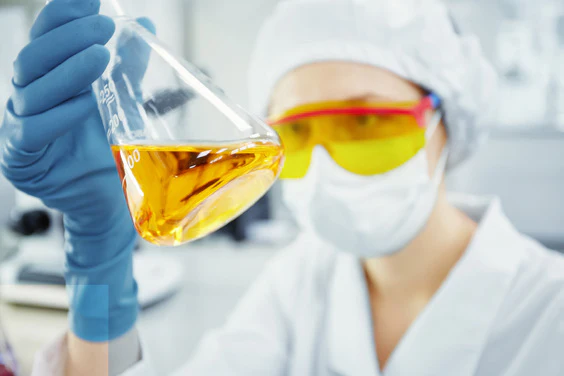Safe handling of ethanol and its applications
MAY 23, 2022 | ISOLVENTS CHEMICALS
Ethanol is known to be one of the best solvents because of its molecular structure that allows for both polar and non-polar solute powders to enter solution upon mixing with ethanol. It is a common solvent in cosmetics, food industry, medicinal applications, cleaning agents and fuel industry.
It is commonly used as an organic chemical in industry to make consumer products, particularly in the manufacturing of polishes, plastics, and commercial products such as perfumes. Despite its broad use, ethanol remains a hazardous chemical, therefore caution should always be exercised when handling it.
Ethanol Applications
In many personal care products solvents are used as a preservative. For instance, it prevents the separation of oils and other liquids in body lotions, maintaining equal distribution of ingredients in the mixture.
Ethanol is also used as an astringent – which causes the skin cells to contract, making the skin more supple and elastic. Astringents are also good at modulating an adequate amount of oil on the skin by removing excess oil, this is done by adding an appropriate amount of ethanol to soaps and lotions. Even in water-based sprays ethanol is added to dissolve excess oil on the skin. In all these products denatured ethanol is specifically used (ethanol with additives to deter oral consumption), especially in perfume bases as well as essential oils to be used in a diffuser.
The food industry uses ethanol to extract flavours and aromas, and for homogenous mixing of ingredients. For instance, it is added to food colouring to enhance its hues and stark quality of colour. It’s also added to food extracts like vanilla, so that the vanillin particles are more miscible with the surrounding ethanol solution.
In medical and other associated fields, ethanol is often used as a topical disinfectant before the administration of injections. It is also used as a preservative and solvent in pharmaceuticals. It’s also a fundamental component in hand sanitisers because it is effective in removing microorganisms such as bacteria, fungi, and viruses. Similarly, ethanol is used in surface sanitisers to provide the same disinfecting effect.

Ethanol Safety Considerations
Ethanol is a widely used product even though it is a hazardous chemical in the lab and storage sectors of industry.
Precautions should always be taken whenever handling ethanol – this includes wearing of appropriate personal protective equipment, especially due to its high flammability. All sources of ignition should be kept away during storage or decanting and mixing processes. Personnel can be exposed to ethanol through vapour inhalation, skin contact or even ingestion. This must be avoided as far as possible, and should it occur, proper protocol must be followed to manage it correctly.
At first glance, to prevent unwanted exposure of ethanol or other hazardous circumstances associated with the improper storage of ethanol, containers must be properly sealed and stored in ambient conditions.
This is our practice at iSolvents as we strive to provide a range of Ethanol and Ethanol blend products, each suited to a variety of applications. Should you require a tailor-made solution, that option is also available. Perfume bases and Sanitisers are also some of the ethanol-based products provided.